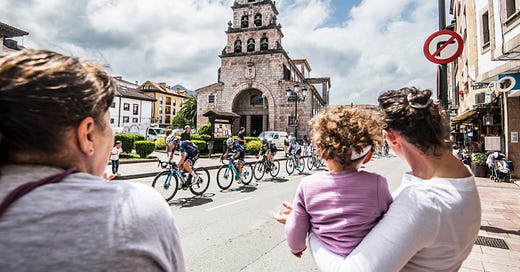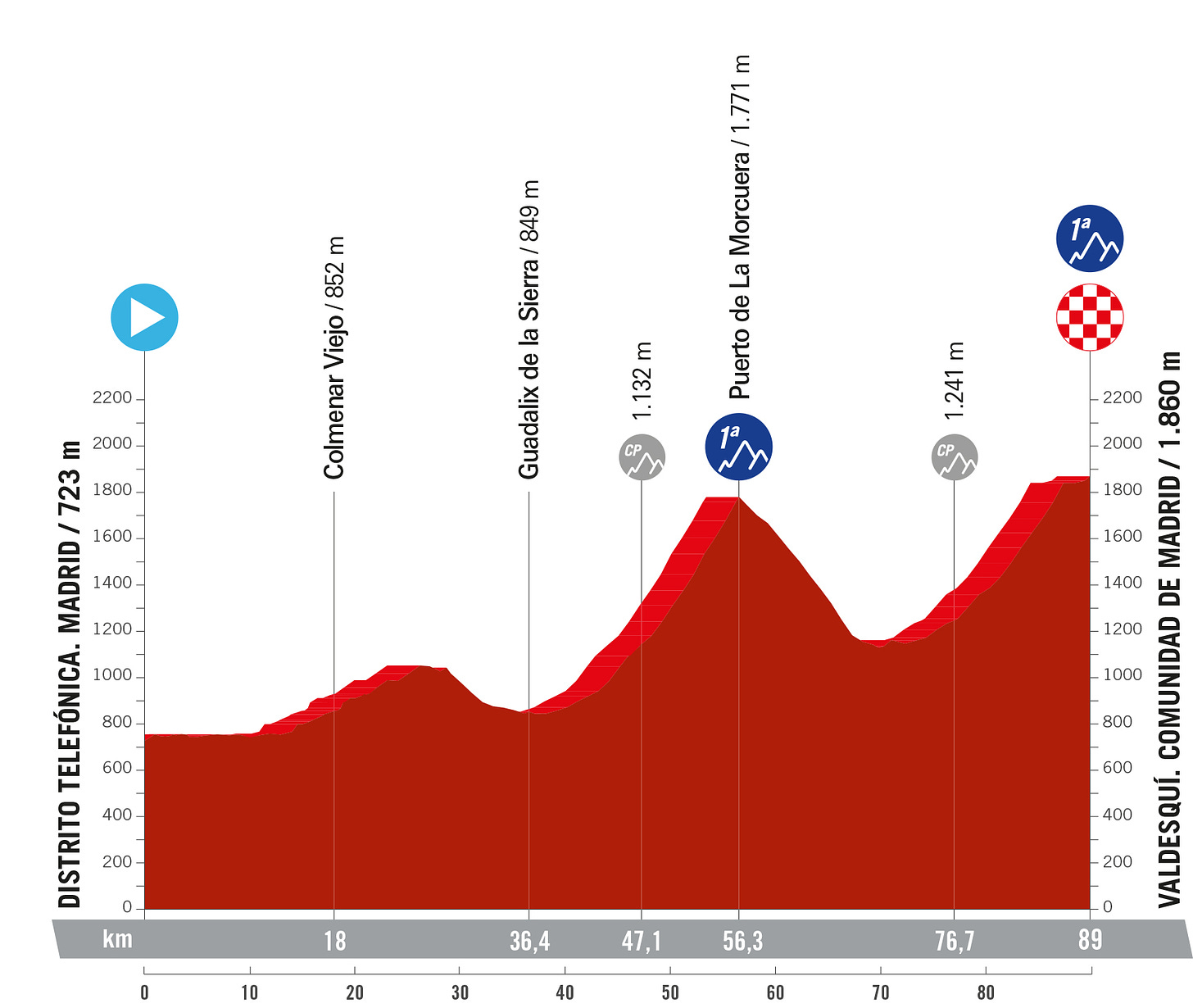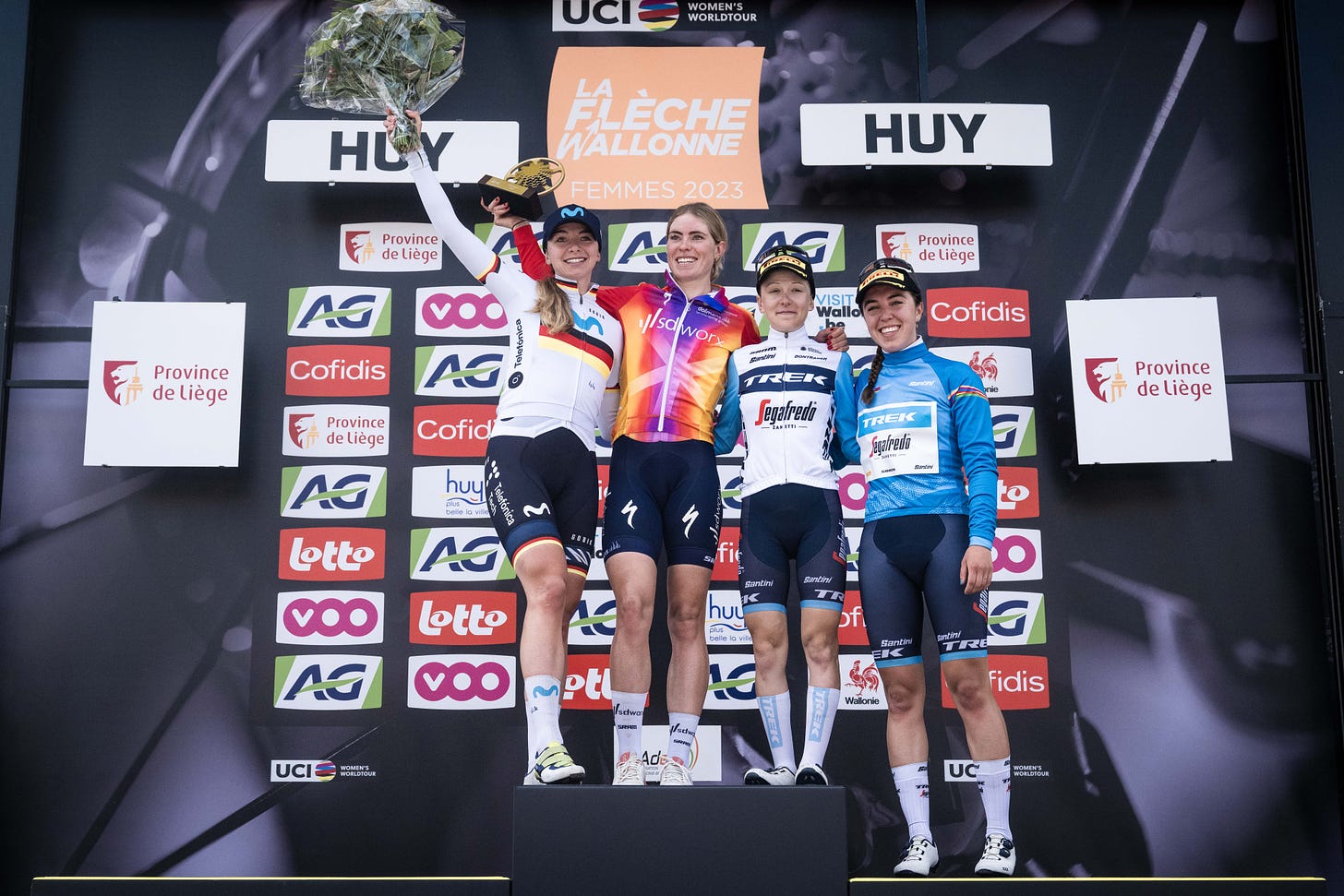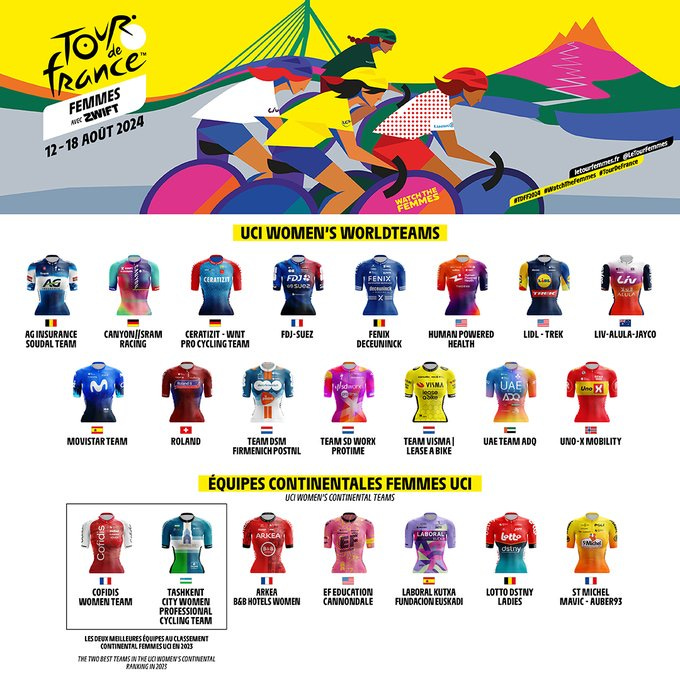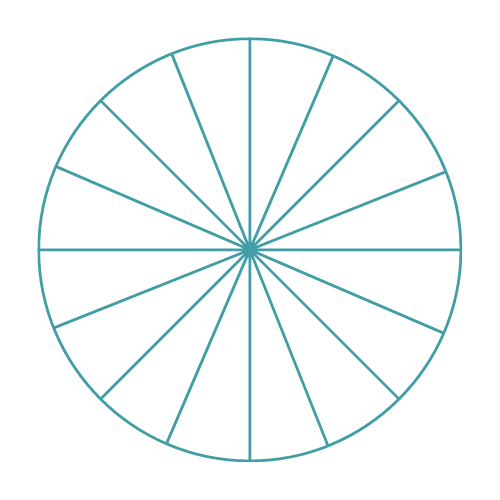Good Grief, Grand Tour Season Is Already Here
The Vuelta Feminina starts Sunday, Giro startlists are leaking, and a surprise contender emerges for the Tour de France Femmes
Still decompressing from the spring classics season after months of star domination on the men’s side and exciting racing on the women’s? Tough shit. The stage racing season waits for no one.
We’re in the midst of the Tour de Romandie at the moment—I have two thoughts, which I’ll return to in a second, because the first grand tour of the women’s season starts on Sunday.
This is the Vuelta España Feminina; at eight stages it’s the longest Vuelta Feminina ever, and in contrast to some women’s stage races—which are a series of flat or punchy stages with maybe one big climb—it poses something resembling a proper grand tour challenge.
The race opens with a 16 km team time trial, and features three listed mountain stages. Two of them are barely worthy of the name, but stage 8 is a proper lungbuster.
It’s only 89 kilometers, but shorter stages with more climbing have become fashionable in the men’s race, and I tend to like these faster, more action-packed parcours than the longer, more attritional climbs. The first summit, Puerto de la Morcuera, is 13.2 kilometers at an average gradient of 6.3 percent, and after a descent the riders go back up the Puerto de Cotos (10 km at 5.8 percent). I won’t go into too much detail about this stage, so as to leave myself something to write about next Friday, but if there’s one thing I want from stage design in women’s racing, it’s more of these multi-climb stages in grand tours.
The startlist hasn’t been locked in yet, but you’ll see a lot of the familiar names—Elisa Longo Borghini and Gaia Realini for Lidl-Trek; Veronica Ewers, Kim Cadzow, and Kristen Faulkner for EF Education-Cannondale; Kasia Niewiadoma for Canyon-SRAM.
And SD Worx is putting all its eggs in the Demi Vollering basket.
This is the storyline of the race to me, and I suspect this is not a minority opinion. Last year, Vollering was verging on so-good-she’s-bad-for-the-sport territory. Last year she won 14 races, including the queen stage and GC at the Tour, two stages at the Vuelta, and a sweep of the Ardennes Triple.
So far this year, she’s been revealed to be out the door at SD Worx—perhaps a sign that she’s lost the intra-team civil war with Lotte Kopecky—but her standing within the sport has suffered not at all; there’s talk she’s in line for the first million-dollar contract in women’s cycling.
And yet, she hasn’t won a race this year. Not a one.
Kopecky isn’t coming to this race. Nor is Lorena Wiebes—she’d be wasted with only one flat stage here anyway. And with defending champ Annemeiek van Vleuten enjoying retirement, Vollering is the only contender who’s actually won a proper women’s grand tour before.1
This is it. This is earn-your-paycheck time for the erstwhile best cyclist in the women’s peloton.
And I am not entirely convinced Vollering can do it.
She’s the favorite, sure, but Longo Borghini’s been eating her lunch all spring. And if Lidl-Trek doesn’t tilt the road to favor their more experienced Italian contender, I think the greater danger might actually be Realini.2
I’m a big Realini fan for two reasons. First: The most consistently funny thing in the world to me—apart from Richard Nixon—is photos of short people next to tall people. Cracks me up every single time. I mean, look at this:
That’s incredible. And her competitors are themselves among the smallest pro athletes you’ll find. Liane Lippert, over on the left, is towering over Realini even with her knees bent, and she’s only 5-foot-6.
Second, and more seriously: I think she is the single rider who is most disadvantaged by the differences between the typical men’s stage race parcours and the typical women’s stage race parcours. There is simply not enough climbing for Realini to make the use of her tiny frame; if the women had to climb the Angliru or go over three Alpine passes in a day, Realini would eat everyone else’s lunch.3 Even if she hemorrhaged time in time trials she could win multiple mountain stages a year and end up with an awesome nickname like “The Goat of Abruzzo” or something similar.
If you speak Italian and can come up with a nickname that sounds better in Italian, please leave a comment.
Last year’s Vuelta was Realini’s coming-out party. She won Stage 6, the queen of the mountains classification, and finished third on GC. If this race had had a young rider classification, she would’ve won that too.
I like Realini for this race for third reasons. First: This race didn’t have a stage like Stage 8 last year, which would presumably advantage a pure climber over puncheur4-climber hybrids like Vollering and Longo Borghini. Second, Lidl-Trek is set to bring a couple monster time trialists—Ellen van Dijk and Elynor Bäckstedt—to the race-opening team time trial.5 If Realini can stay attached, her teammates could drop her off at the up-and-down bits with time in hand over Vollering.
And third: Lidl-Trek has had a pretty clean and cohesive spring from a tactical perspective. We’ll see if that holds if and when Longo Borghini isn’t the leader, but cohesion won this team Ronde van Vlaanderen. Not only has Vollering been shut out so far this year, but SD Worx has been messy of late. I think this once-indomitable-looking team and rider can be had, if Lidl-Trek is smart.
Looking ahead a little, ASO released the team list for the Tour de France Femmes this week. The invitees include the usual crop of World Tour teams, as well as a number of invited wild cards from lower divisions.
Most of those are discretionary, based on team reputation or sponsors, or sometimes just because they’re French. But there are two wild card spots reserved for the Continental Tour teams that won the most UCI points in 2023.
Anyway, here’s the announcement from ASO:
So there’s EF, which won a monument last year and has top-10’d the Tour in its previous guise, plus Cofidis, Arkéa–B&B Hotels, and Lotto Dstny—all marques that are well-known in the men’s peloton.
And then there’s Tashkent City Women Professional Cycling Team. Yes, the Tashkent in Uzbekistan.
So what gives?
Well, if you want the full story, you can read this article in Cycling News by Dan Challis, who writes the Global Peloton newsletter here on Substack.
The short version is that Tashkent City spent the entire 2023 season planning its schedule solely to win as many UCI points as possible in order to guarantee Uzbekistan a berth in the cycling events at the Paris Olympics. Their roster includes just 14 riders, the only one of which anyone’s heard of is 43-year-old Olga Zabelinskaya. None of the other 13 riders are older than 27; only three the other 13 are older than 21. And their own DS admits that most of the roster is not World Tour-ready.
But they’ve shown up at tons of smaller UCI races, mostly in Asia and Eastern Europe—though they’re currently at the Tour of the Gila in New Mexico6—and run up big point totals. Some of the second-tier European teams are crying foul, saying that Tashkent City has raced events that don’t conform to UCI standards, or doubled up on points by submitting a second squad under the guise of an Uzbekistani national team.
Sounds like sour grapes to me. Cycling is such a more global sport now than it was even 15 years ago, but there’s still a possessive chauvinism from Western Europe, and when the existing power structure gets hoisted by its own petard I can’t help but smile.
All these French and Belgian Continental teams run together. This is more fun and more interesting—and more meritocratic, to be honest—than business as usual. If some team of unknowns games the system perfectly, they deserve to go to the Tour de France. I hope they win every stage.


